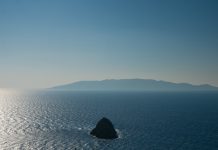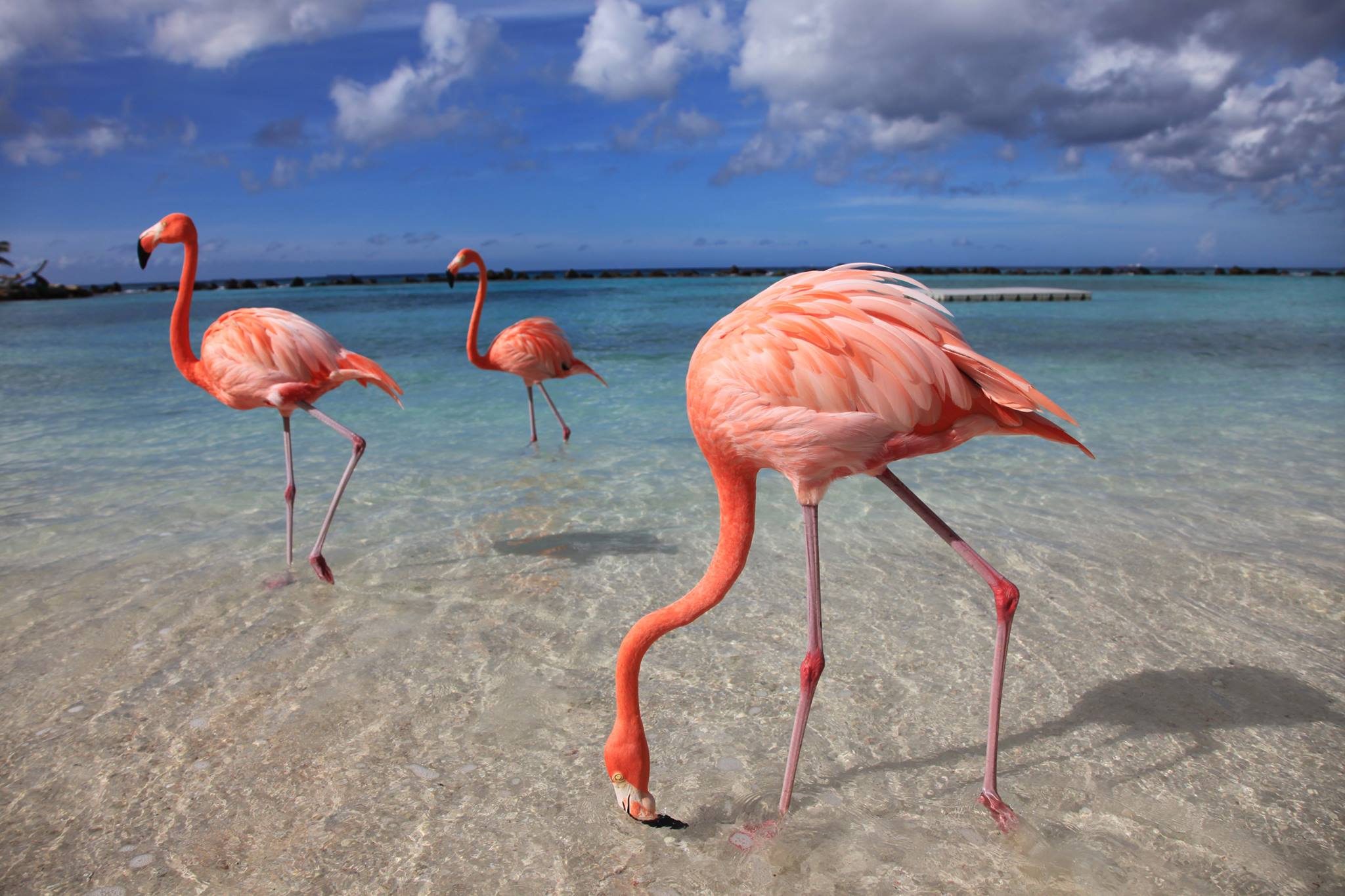Aruba flamingos pretty in pink
Aruba’s flamingos have gone viral. While Instagram is a-flutter with flamingo-appreciative oohs and ahs, the pink avians have lived a subdued life at Renaissance Private Island, a 10-minute boat ride from Aruba’s capital, Oranjestad.
The domain of the half dozen Aruba flamingos is naturally called Flamingo Beach – one of two beaches on the Renaissance private island. The other family-friendly beach on the same small island is called Iguana Beach. People don’t seem to be as impressed by crawling iguanas as they are by graceful pink Aruba flamingos. The island’s iguanas haven’t yet gone viral.
Flamingo Beach is strictly for adults – no children allowed. But you can bring your inner child at no extra cost, and the kid inside you will probably be thrilled to wade alongside these gorgeous birds in a peaceful tropical paradise. The birds don’t seem to mind wandering around sunbathers on the white sandy beach, or wading alongside swimmers in the shallow waters.
How can I see the Aruba flamingos?
A private island is, by definition, not open to the public. To get to the Aruba flamingos you either need to stay at the Renaissance Aruba Resort & Casino (in which case a boat trip to the island is included for free) or you can buy a USD 99 day pass, which includes the boat ride and a drink. The shuttle boat leaves from the Renaissance every 15 minutes. The canal goes into the hotel reception area, and when the boat leaves the reception, it passes under a bridge before you head out to sea.
“You can bring your inner child at no extra cost”
On the way to the Renaissance ‘flamingo island’ (not its real name) you may hear a loud roar and wonder if it’s from some kind of jet engine. Look up. The boat ride takes you dramatically close to the flight path for Aruba’s airport.
Are the Aruba flamingos free to fly?
It’s hard to find out whether the Aruba flamingos are free to leave Renaissance Island or not. We were told they were not native to the area, but were brought in by the hotel. American flamingos are native to other nearby islands in the Caribbean. The Aruba flamingos seemed happy enough at the private island, but I did not interview any of the birds extensively. There is speculation online that the handlers limit their ability to fly, preventing them from leaving the island.
One thing is for sure, if I were an Aruba flamingo, I would be pretty sick and tired of tourists with selfie sticks.
*Note: this trip was sponsored by the Aruba Tourism Authority.






















